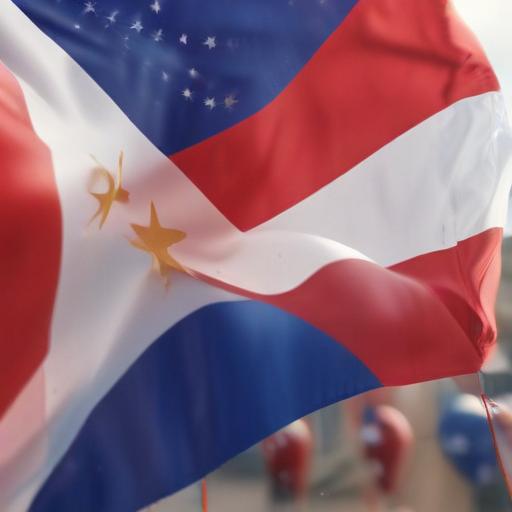LOS ANGELES – June 12 stands as a pivotal date in Philippine history, marking the country’s declaration of independence from Spanish colonial rule in 1898. For millions of Filipino Americans, this day has transitioned from a mere historical memorial into a vibrant expression of identity and community, enriched by their distinct experiences and shared heritage as part of a global diaspora.
Throughout the United States, Philippine Independence Day has transformed into a multi-faceted celebration of Filipino culture, history, and community visibility. From colorful parades to cultural showcases and politically charged rallies, these celebrations highlight both the complexities and strengths of the Filipino American community.
Professor Allan Aquino, an educator and second-generation Filipino American, underscores the evolving significance of June 12. “Philippine Independence Day in the U.S. is more than just a remembrance; it’s a forward-looking affirmation of our identity,” he states. Reflecting on his experiences, he notes, “In the 1980s, many of us lacked an understanding of our history. Our parents focused on establishing secure lives and preserving culture largely through food and family traditions.”
The 1990s prompted a cultural awakening among Filipino Americans, as many began to engage with their heritage through collegiate organizations such as the Filipino American National Historical Society (FANHS). This marked a shift where Independence Day began to resonate on a personal level for many.
Today, festivities across major cities like Los Angeles, Houston, New York, San Francisco, and Seattle, organized by groups such as Kalayaan Incorporated and the Pilipino Workers Center, celebrate not just Philippine history but also advocate for political awareness and cultural understanding.
In June 2024, the Los Angeles County Board of Supervisors will officially recognize June 12 as Philippine Independence Day, a significant acknowledgment of the rich heritage and contributions of over 500,000 Filipino Americans in the county.
Community advocate Louinn Lota, who emigrated from the Philippines as a child, shares how her participation in Independence Day events connects her to her roots and her mother’s dedication to cultural practices. Kalayaan Incorporated assists in organizing these celebrations alongside the Philippine Consulate, emphasizing the importance of cultural preservation and community engagement.
However, Lota observes generational shifts in engagement with Independence Day. “I wonder if second- or third-generation Filipino Americans truly connect with the celebrations, often expressing a more American identity,” she remarks.
Cultural representation remains diverse at these events, although Lota highlights the lack of visibility of southern Philippine traditions, despite their rich narratives of anti-colonial resistance. She expresses hope that future observances might showcase a broader array of Filipino cultural contributions, such as locally produced arts and delicacies.
The upcoming Independence Day celebration in Carson, California, on June 7 promises diverse cultural performances and traditional Filipino cuisine, with Martin Nievera set to headline the festivities. Free to the public, this event exemplifies the community’s outreach and celebration of its vibrant heritage.
Aquino notes that while these celebrations often feature entertainment, they harbor deeper meanings linked to historical awareness and social justice. The political relevance of Independence Day observations has intensified recently, encompassing topics such as immigrant rights and social equity, addressing both local and international community concerns.
Organizations like the Pilipino Workers Center leverage Independence Day to promote immigrant rights and support vulnerable populations, while SIPA celebrates through programs that honor impactful community members, enhancing Filipino American pride.
For Aquino, the intergenerational aspect of these celebrations is a key strength, uniting Filipinos across ages in a shared experience of cultural visibility. “These events remind us of our importance and signify that we’ve always belonged,” he states, stressing that cultural preservation extends beyond, needing ongoing support for community initiatives, especially in the face of budget cuts to arts funding.
Despite ongoing challenges in advocating for cultural programs, Aquino remains hopeful. “Our celebrations embody values of hospitality and compassion, which is the spirit we carry forward.”
